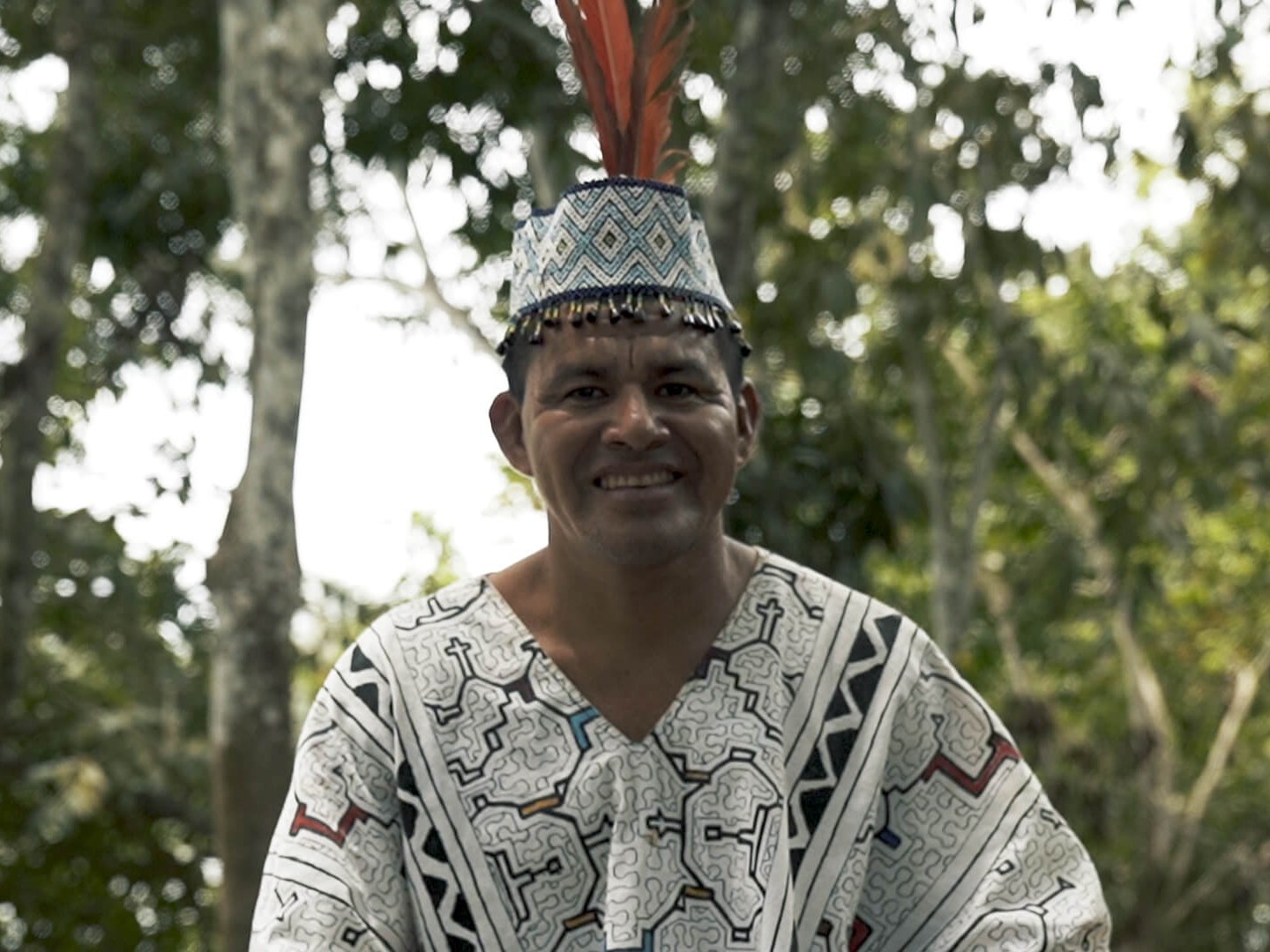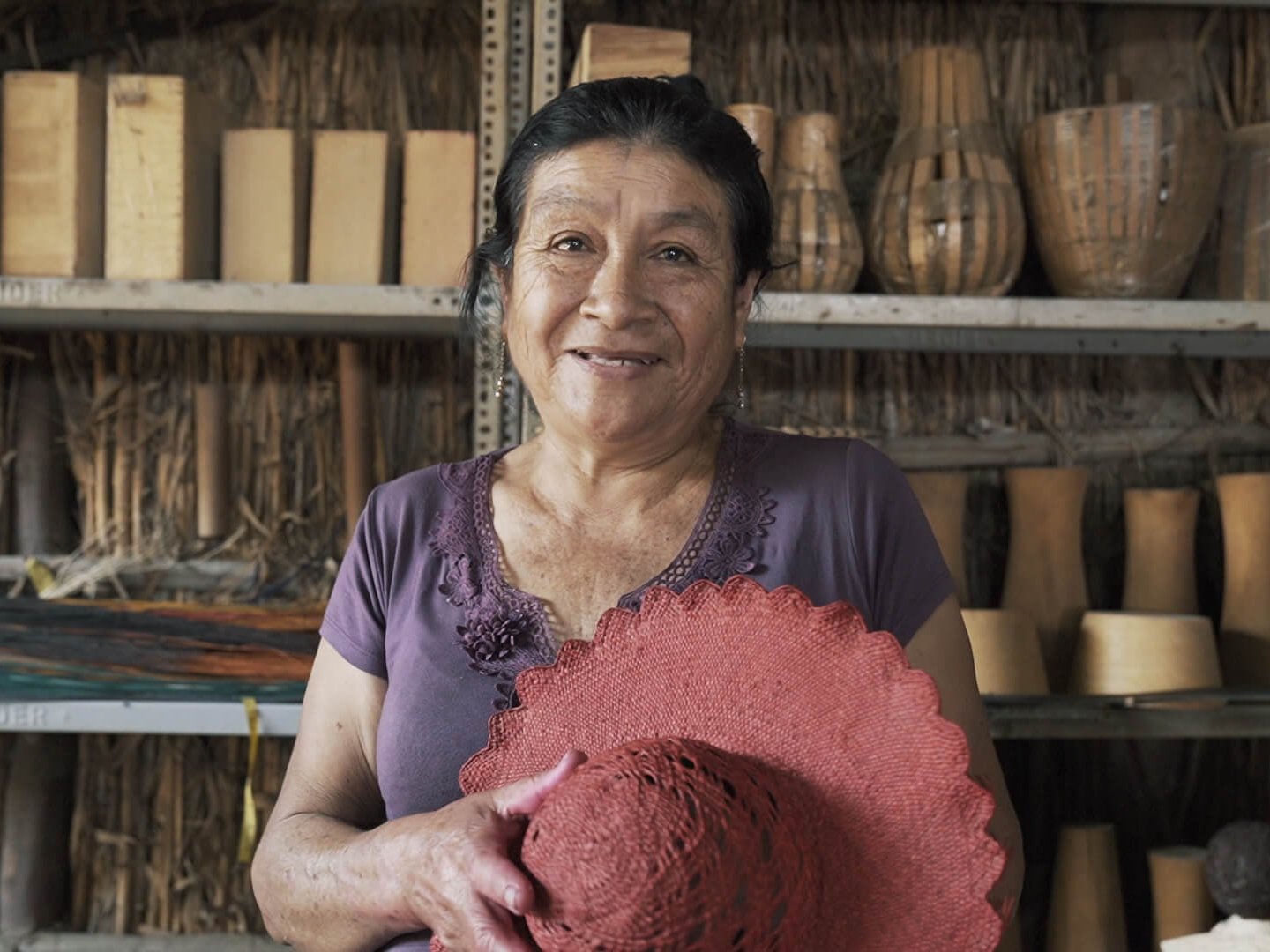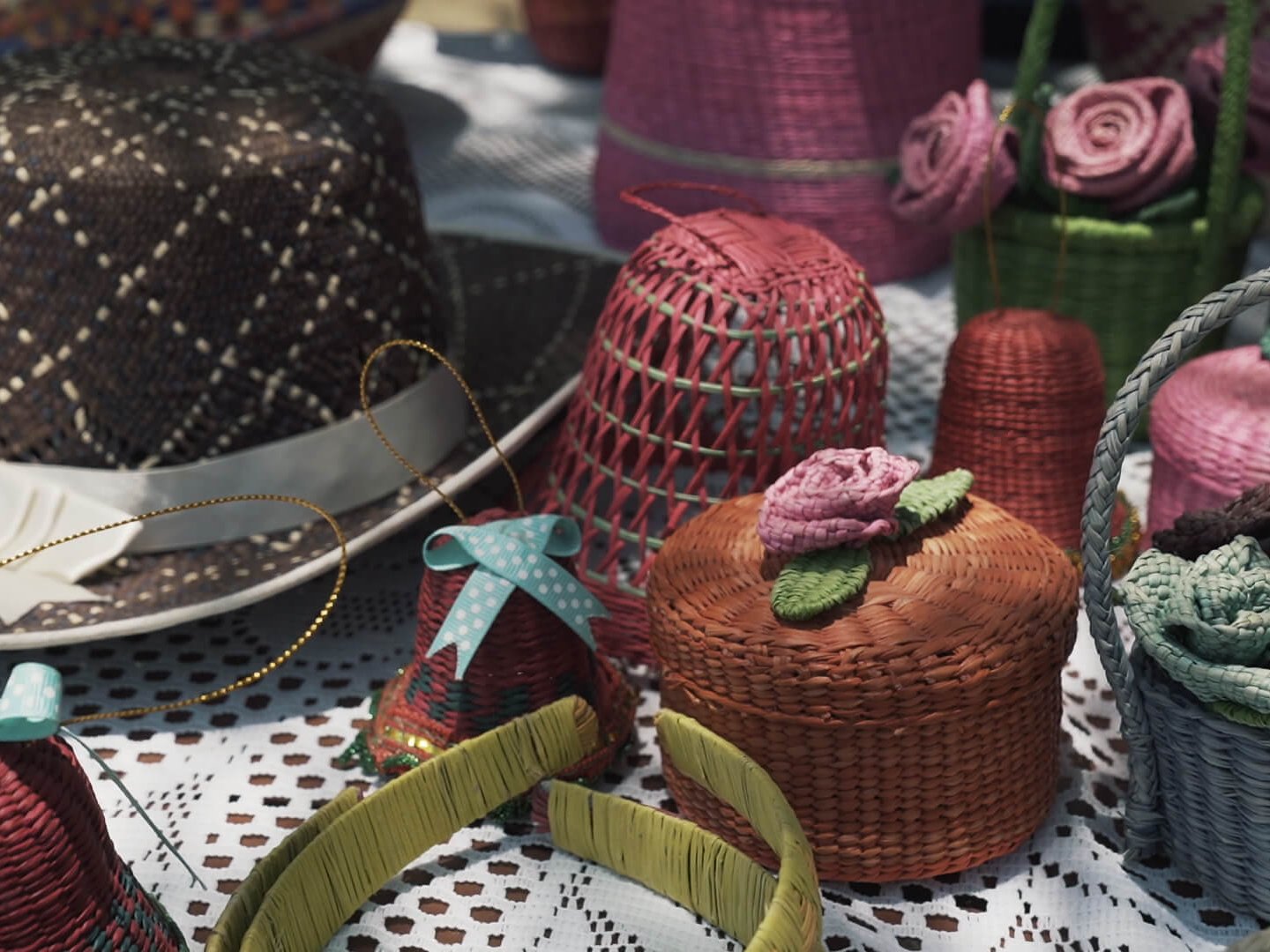Leer en Español.
All my brothers went to school, but they said me and my sisters didn’t have the right because we were women.
M y name is Agustina, and I am president of an entrepreneurial women’s group here in Pampa Chica, Piura. We weave with toquilla straw to make hats, flowers, hair pins, jewellery boxes, bags and purses. It’s white so we dye it many colours to make it prettier. Without this group we would have lost our traditions.
The group is made up of 28 women, some single moms, some married. None of the members have a stable job, they are mothers that work temporary jobs in the fields harvesting cotton, grapes and corn. I stay home to take care of my family, make chicha and look after my turkeys, chickens, pigs and cows. I raise the animals to help make money though it’s rare to see women working at home. When there aren’t any jobs, we weave different things.
We live in a village where the government has not really helped. We don’t have a proper sewage system and don’t have good roads so when it rains we can’t leave the village and there isn’t any work.

There is sexism here too and we want to overcome that.
There is sexism here too and we want to overcome that, we want to leave it behind. We don’t want our daughters to be manipulated and oppressed. Most of the members don’t know how to read or write or use mobile phones. I have five sisters and my parents didn’t allow us to go to school. All my brothers went to school, but they said me and my sisters didn’t have the right because we were women. I was able to learn how to write my signature but I use my memory to do my finances.
It affected me because as president of our group, I was invited to meetings in the city and I felt bad because the rest of the women took notes but I couldn’t. I felt embarrassed and ashamed but my son told me to not feel that way, because I’m valuable for who I am. Some younger women who know how to read and write started to come with me to help me fill out forms.

The dream of our group is to preserve our traditions for our grandkids and prevent them from being forgotten.
The dream of our group is to preserve our traditions for our grandkids and prevent them from being forgotten. We want a place to sell our products, to have a market. If we sell we keep working, if we don’t sell, we can’t buy more straw.
Our mayor supported us with training and paid for us to go to a crafts fair in Ecuador. But after some time the mayor changed and the new mayor didn’t help us anymore. We also received training from an NGO called SIKA, but they can only help us until December. And now because of the COVID 19 disease we can’t go to crafts fairs. And the teachers who would buy hats and jewellery boxes as gifts for teacher’s day or anniversaries, don’t anymore because teachers don’t go to school.

We want to prosper even as illiterate women and make our children feel proud of us.
We want to learn how to sell online. We would like a business person to help us with training and help us start a business. We want to learn how to use a mobile phone and computer, how to make sales and bank deposits as now, if we get an order, we don’t know how to read it, how much someone should pay us or the costs, or how the products need to be sent. My daughters helped us create a Facebook page and we got some orders to make small roses and we would like to have more orders like this.
I know that even if we can’t read, we will use our memory. We want to prosper even as illiterate women and make our children feel proud of us.

Lizeth Yarlequé is a documentary filmmaker, video journalist and producer from Peru. Her passion for developing stories that bring awareness to social, environmental and cultural topics has led her to film and produce projects for the broadcasters worldwide.
Her documentary ‘Two More Weeks’ about the pandemic in Peru won as Best Short Documentary at ‘ISA film festival’ in US in July 2020.
Photography by Lizeth Yarlequé.
For more on identity in a digital age, join our Facebook group.




